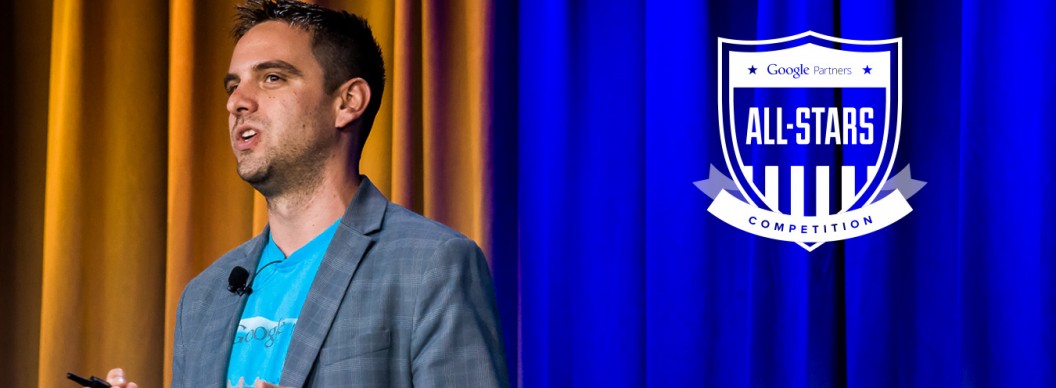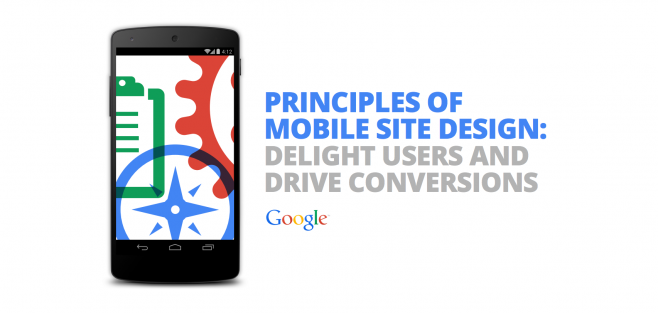Last week my colleague Tom Nolan and I were invited to attend the 2014 Google Partners Allstars Summit at Mountain View in California, after Creare won the UK Great Google Partners Adventure Challenge.
The two day event at Google’s Headquarters boasted fantastic talks, workshops and a tour of the Googleplex itself. Since the launch of Google Partners worldwide last year, Google are working much more closely with agencies to foster, support and engage with companies that excel in supporting SMBs with their digital marketing.
The Google Partners team hand picked a line-up of fantastic speakers to provide insight and support in a wide range of marketing topics and Google products.
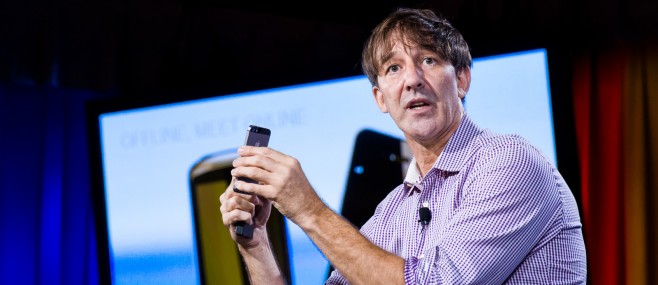
Key Takeaways
All of the speakers from the summit were fantastic, but in this short post, I’ve shared my key takeaways below  – which are relevant to my experience and what we do here at Creare.
The Profit Driven Marketer
In the summit’s opening presentation, Matt Lawson (Director - Search Ads Marketing at Google) shared insight into how profit should be a marketer’s primary focus for measuring ROI. He went on to explain how many marketers measure clicks, impressions or conversions – when real business targets can be met when the focus moves to measuring growth on the bottom line. To re-enforce Matt’s message he also shared real-life case studies that showed impressive growth by balancing profits with sales volume.
SME’s & Google+
Christian Ashlock – (Brand Marketing Lead Google+)  shared how Google+ is being used by big brands to reach new audiences and drive marketing. With high-end examples like Manchester United’s use of Google+ Front Row, Cadbury and Alicia Key’s album launch the real potential of Google+ started to shine through. After Christian’s talk the Partners audience began asking how Google+ might be leveraged for small and medium sized businesses and brands.
However after Christian’s presentation which centred on how big brands are using Google+, I asked a question about utilising Google+ for smaller businesses. I asked “When setting up a business Google+ Page, at what cut-off point should businesses opt for a brand profile instead of a Storefront or Service area?”
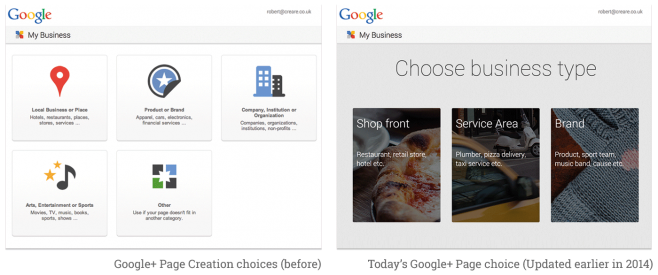
I asked this question because this choice has always been unclear in my opinion. Many small businesses have opted for a Brand page in the past, when perhaps a local page is better. Christian replied by recommending that Brand pages should be used by small businesses when they have multiple locations (with premises) as an umbrella ‘brand’. For example each individual location would have its own Local Google+ page, with a single brand Google+ page for the business overall.
Mobile
One of my favourite talks was by English expat Jennifer Gove – (UX Researcher at Google). Jenny highlighted how we’re still in the era whereby very few businesses, particularly SMBs, have a usable mobile site. Although Jenny didn’t tie this in with Adwords, I got the impression that Google are keen to push mobile support in order to increase conversions and the effectiveness of Google Adwords.
To re-enforce Google’s recently released 25 Principals for Mobile Design, I noted the following tips shared by Jenny:
- On your homepage, keep calls to action front and centre. Don’t use ‘learn more’ buttons and vague big open spaces.
- Navigation should be kept short and sweet.
- Studies show that great, fast site search is important.
- Use third party and social logins.
- A consistent URL structure, which is one of the key reasons that Google back Responsive Web Design.
- Don’t allow pinch and zoom.
You can watch Jenny sharing a similar talk at Google I/O 2014 – Design principles for a better mobile web over on YouTube. Jenny also shared a fantastic Google resource, that I hadn’t seen before – Google’s Web Fundamentals, a best practice guide for developers.
Google Analytics
Google’s Adam Singer – (Program Manager at Google) shared a fantastic update on Universal Analytics, touching on the recent additions such as the Bot & Spider Filter, brand and generic paid traffic segmentation, enhanced Ecommerce reports, diagnostics and the new content grouping in the behaviour flow. Adam also re-enforced the growing Analytics Academy presented by his colleague Justin Cutroni.
Great video shared by @AdamSinger #GoogleAllStars Google Analytics in real life – checkout http://t.co/4koCt03Cqz
— James Bavington (@jamesbavington) August 27, 2014
The Agency Panel
As with previous Partner Summits, Google include an agency panel – to which I was invited to be part of. Joined by directors from other agencies around the world, we had a fantastic debate and took questions on topics that affect our business, clients and services.
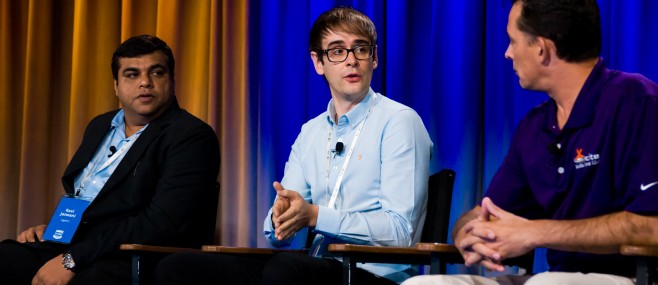
The agency panel was a true insight into the day-to-day successes and hurdles that agencies around the world face on a regular basis. One of my favourite things about conferences is the networking opportunity to meet people from other agencies and share experiences.
The Future of Google Partners
The second day of talks was headlined by the eagerly anticipated update on the Google Partners platform itself. Product Manager Kevin Nelson took to the stage to share the successes and failures of Google Partners after its first year, but also the next stage of its evolution.
Our mission is to ensure that every business gets the help they need to succeed on the web. From resources to support, Google Partners aims to be the first choice for advertisers looking to work with recognised agencies.
Kevin started his talk with a preview of the new certifications that are coming to Google Partners over the coming weeks and months:
- Google Analytics (Monday 23rd September)
- Advanced Video
- Doubleclick Search
As with the existing Google Adwords certifications, Google Analytics and all other certifications will be free to take. Kevin also asserted that new certifications will continue to appear which will be driven by whichever of their products are ‘rising and popular’.
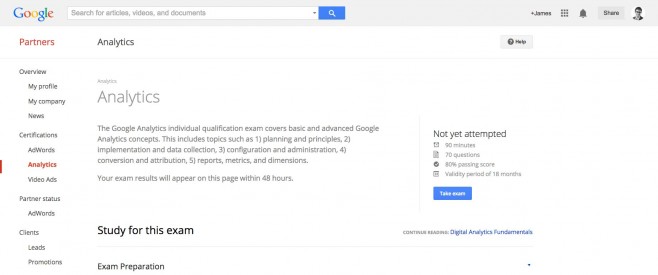
Kevin then moved on to share the exciting developments of the Google Partners Portal itself. Although we were forbidden from taking photographs of the portal and exclusive demonstration, I noted the following key points of the portal:
- New design, which has been led by pilots and focused on helping SMBs
- Premier support will be given to Google Partners, which has been piloted in the USA in August.
- The Partner Search itself will be using a new ranking algorithm to help advertisers find the very best Partners.
- Improved insights for Partners.
The new portal really did look impressive, however after the talk, many agencies expressed their concerns having received very few leads through the existing Google Partners Portal to date. Kevin responded by reassuring that once the new portal is live and ‘they’re happy with the User Experience’ – they will be driving more traffic to it.
Conclusion
It was an absolute pleasure to have been invited to the Google Partners summit at Mountain View; the Google Partners team really looked after us and shared some real insights not only into marketing, but also into Google’s ever-expanding range of tools, products and services.
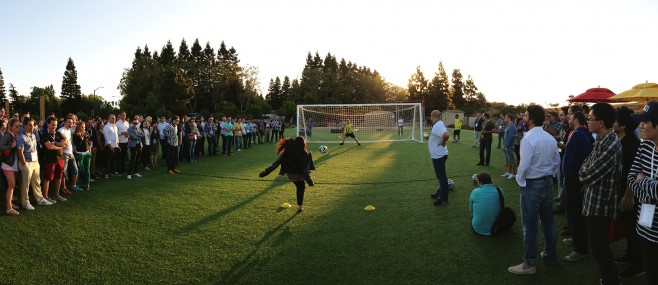
Google are really starting understand and appreciate how supporting agencies can help businesses of all sizes achieve their business goals with digital marketing.
